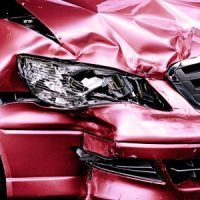Does The Value Of A Car Affect How Likely Someone Is To Hit A Pedestrian?

Are some people more likely to ignore, and run into pedestrians? Are there certain kinds of cars that are more likely to injure pedestrians? A study looked into just that, and while the results may not be completely scientific, they are interesting.
How the Study was Conducted
The study was conducted by sending test subjects into crosswalks in the Las Vegas area. The pedestrians came from different backgrounds and nationalities. The study wanted to see how many cars would yield to pedestrians. It sent pedestrians into an intersection, in the same manner. Overall, the cars rated pretty low—only about 28% of the cars yielded for the pedestrians.
There was a higher yield rate for female and white pedestrians, but not by a large margin. There was only one variable that made a statistical difference in whether a car would yield for a pedestrian or not: The value of the car.
In seeing whether a car yielded or not the study took into account the car’s book value (that is, the value the car currently has, not what it’s value would have been when purchased—that means an older, luxury car would not have a high value for the purposes of the study).
Value of the Car Affected Yield Rates
The study found that for every $1,000 increase in the value of the car, the likelihood of yielding went down by 3%. In other words, the more expensive your car, the less likely you were to slow down for people in the road, according to the study.
This isn’t the first time a study has tried to correlate car value, or the likelihood that a driver in a more expensive car exhibits selfish behavior, or exhibits less empathy. Other studies have correlated these two factors.
Of course, none of these studies are particularly scientific, and a number of factors could be at play. Drivers of nicer cars may be overly reliant on the car’s safety features to warn them of a pedestrian, or oncoming traffic. Drivers of nicer cars may get “attitude” from other drivers, which they then transfer to their own driving behaviors.
There also is a subjective bias to the study, as researchers often had to interpret whether a car was “likely to yield” or not. Researchers also used online research, to estimate the value of a car.
Pedestrians and Drivers Should Be Aware
Drivers should always be aware of surroundings, and pedestrians should also be reminded to cross at designated crosswalks, and where there is a signal for when it is safe to cross the street, to obey them. Many pedestrian accidents involve contributory negligence—that is, the driver of the car blames the pedestrian for bolting out into traffic, or for crossing where he or she was not permitted to cross.
If you have been injured in any kind of car accident, we can help. Call the Tennessee personal injury lawyers at Fox Farley Willis & Burnette, today.
Sources:
caranddriver.com/news/a31131731/new-study-says-expensive-cars-are-bought-by-jerks-who-wont-yield/
sciencedirect.com/science/article/abs/pii/S2214140520300359











